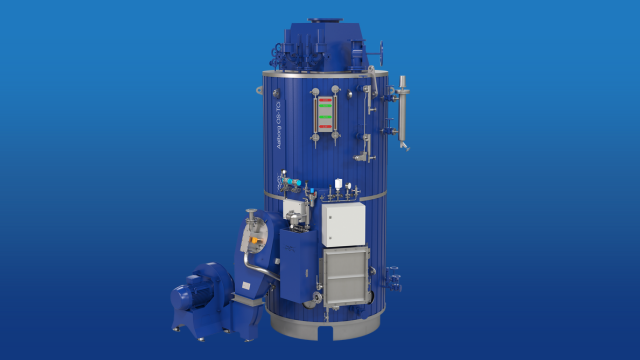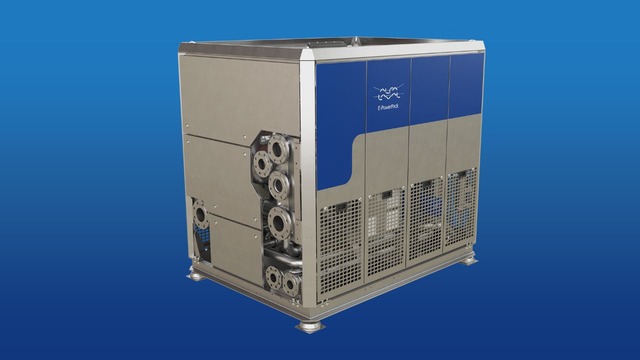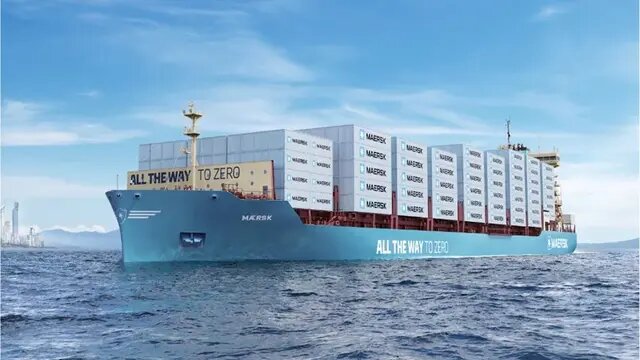Marine equipment and solutions for methanol as fuel
Fuelling a new phase in decarbonization
Methanol is emerging as a commonly chosen alternative fuel that can help the marine industry progressively reduce emissions and meet decarbonization targets. If produced from renewable sources, it can reduce CO2 emissions by up to 95% compared to conventional fuels. Green methanol would add no new CO2 to the atmosphere, making vessels carbon neutral when using it.
Nonetheless, methanol will demand new technologies and a different way of looking at the energy balance on board. Alfa Laval is at the cutting edge of methanol solutions – and is ready to partner with you in making the transition.
Our products and applications for methanol as fuel
Fuel supply system for methanol
The Alfa Laval FCM Methanol is a low-flashpoint fuel supply system (LFSS) that can be adapted to any kind of marine engine and vessel design. It is a proven technology that has been operating on methanol fueled vessels sailing around the world since 2015.

Aalborg marine boiler solutions for methanol as fuel
Built on a century of thermal expertise, Alfa Laval Aalborg marine boilers are leading the way in methanol operation at sea. Their future-proof design, which also allows methanol-ready deliveries for later conversion, incorporates deep insights and real-world installation experience.

Enabling the move to methanol as fuel
Find out why the Alfa Laval FCM Methanol is the leading choice of low-flashpoint fuel supply system (LFSS) in today’s methanol projects. This short video explains why more than a pump is needed, and it shows how the FCM Methanol lives up to the challenge – from flexible installation to peace of mind in operation.
Fuel-flexible and future-proof boiler solutions
Discover the unique platform behind our methanol boiler solution in this short video. Alfa Laval Aalborg boilers can be equipped for methanol operation today, but they can also be delivered methanol-ready for easy, cost-effective conversion at a later time. With the addition of hybrid capabilities, they can utilize shore power as well.
Heating and cooling
Methanol is similar to liquid fuels that are already in widespread use in the marine industry, but it has both a low flashpoint and an aggressive nature. Alfa Laval offers several heat exchanger types that can handle the temperatures, pressures and corrosion risks associated with methanol operations.

Power from waste energy
The Alfa Laval E-PowerPack uses Organic Rankine Cycle (ORC) technology to create electrical power from any heat source on board. By letting you take advantage of all available waste energy, even when steam demands are minimal, it can help you retain fuel economy despite the higher cost of methanol.

Waste heat recovery
The Alfa Laval Aalborg Micro exhaust gas marine boiler supports energy efficiency in multiple ways. Connected to a fired boiler, it supplies steam to a shared steam drum, reducing the need to use the burner. Used with the E-PowerPack and a plate heat exchanger, it delivers waterborne heat energy at a temperature that maximizes power output.

Case story: methanol-fuelled vessel powered by Alfa Laval technology
Alfa Laval technology powers sustainable operations on Maersk’s pioneering methanol-fuelled container vessel
In a world where sustainability is increasingly important, A.P. Moller-Maersk has set sail with the world’s first methanol fuelled container vessel. Equipped with Alfa Laval’s solutions for methanol as fuel, this vessel shows how innovative solutions and equipment can help shipping companies adapt to the evolving energy landscape and environmental regulations.

Marine Service Netzwerk
Unser spezialisiertes Marine Service Netzwerk unterstützt Sie mit Ersatzteilen und Fachwissen – überall und jederzeit. Durch höhere Betriebszeiten, Verfügbarkeit und Optimierung sorgen wir für Ihre Sicherheit und maximieren Ihre Investitionsrendite.
24/7 Service & Support
Kontaktieren Sie uns jederzeit und überall:
Marine Expert-Ease
Bleiben Sie mit unseren Marine Expert-Ease-Blogs in der sich wandelnden Landschaft immer einen Schritt voraus. Auf der Grundlage von über einem Jahrhundert Erfahrung bieten unsere Experten in diesen Blogs Einblicke in wichtige Branchenthemen wie Energiewende, Dekarbonisierung, Digitalisierung und regulatorische Veränderungen. Erhalten Sie die Erkenntnisse, die Sie benötigen, um die Herausforderungen zu meistern und die Chancen zu nutzen, die die Zukunft der Branche prägen..
Alfa Laval Test- und Schulungszentrum
Zuverlässigkeit ist bei Anlagen für die Verwendung von LNG, Biokraftstoffen, Ammoniak und Methanol von größter Bedeutung. Alfa Laval erreicht dies nicht nur durch jahrelange Erfahrung, sondern auch durch umfangreiche Tests im Alfa Laval Test & Training Centre. Diese einzigartige Einrichtung verfügt über einen ganzen Bereich, der sich der Gewährleistung eines sicheren und effizienten Gasbetriebs widmet.
Erfahren Sie mehr über das Test- und Trainingszentrum
